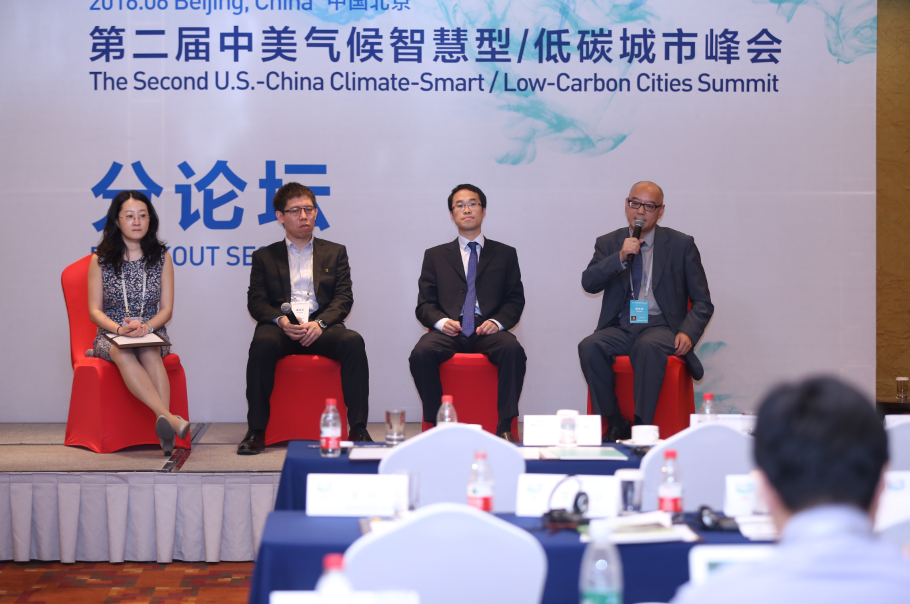|
8-June-2016, Beijing - During the U.S.-China Climate Leaders' Summit, a consortium led by iCET (Innovation Center for Energy and Transportation) introduced an open initiative for developing a big-data based standard to make governments and companies accountable for their environmental impact. The initiative encourages public-private collaboration to develop and use MRV as a tool to tackle climate change challenges in the transportation sector. With an open consortium including NDRC-ERI, the research arm of China's central policy planning ministry, and Uber China, a leading ride-hailing service provider, public and private stakeholders cooperated on initial MRV development.
A pilot study in Chengdu, China demonstrated the MRV initiative's potential to utilize accurate and verifiable information from multiple sources for making decisions, and simulated the potential outcomes of “Ride-Sharing” behavior changes. The project was sponsored by the National Geographic Society's Environment and Water Conservation Fund. The pilot study in Chengdu revealed that:
● 80% of trips in Chengdu were repetitive – i.e. from an identical Origin and Destination
● If one in five of these rides were shared (i.e. two passengers sharing one car via a ridesharing platform), emissions would be reduced by 28%.
● If three in five of these rides were shared, urban congestion would be effectively eliminated and emissions would be reduced by 70%.
● Passenger vehicles in urban centers may emit up to 78% more emissions during peak hour “stop and go” driving than previously estimated by conventional calculations.
The consortium plans to conduct more in-depth research during later project phases, and hopes to improve understanding of an urban transportation system’s efficiency. They also plan utilization of MRV based quantification of emissions to promote sustainable consumer behavior under the UNEP’s “Sustainable Consumption and Production” program. The MRV standard envisioned would serve as the foundation for quantitative instruments tackling climate change, making each value chain actor accountable for their environmental impact.
Quote from Global Experts:
Stephen Perkins, Head of Research at the International Transport Forum (ITF) at the OECD, the leading multilateral platform for global transportation: "ITF modeling supports the pilot results of the Live-Cycle project, and the potential for reducing emissions by better use of vehicles, including through innovative shared mobility services. Monitoring how these systems and indeed all vehicles really perform on our city's roads based on MRV principles is vital to effective emissions mitigation policy."
Yuren Nie, Uber China's research lead, adds that these findings echo their own internal research: "We launched uberPOOL last July, a service that enables riders to share a ride—and the cost—with others who happen to be traveling along a similar route at the same time. Over the 10 months since, we have cut the number of kilometers driven in Chengdu by 50 million, and reduced CO2 emissions by 14 thousand metric tons, highlighting the immediate and dramatic positive impact that ridesharing can have on the urban transportation landscape. We are delighted to be part of this effort to help enable smarter transportation choices in China."
Dr. Feng An, iCET's founder and executive director emphasizes, "This public-private cooperation for the very first time uses big data for enabling accountability of environmental impacts. To effectively achieve the Sustainable Development Goals, we need more practical sustainability actions. Real actions are only possible with the capacity for quantifying sustainability, and through public and private stakeholder collaboration based on a transparent data environment. This is our vision for what the MRV standard can do."
Cuneyt Oge, President of Society of Automotive Engineers International, the leading global standards organization for the automotive industry, said "The transportation sector has long lacked an implementable MRV standard due to technical constraints and difficulty in verifying data sources. It is only appropriate that we use the best technological resources of the information age like Big-Data to help tackle the challenges of climate change. The 'Measureable, Reportable, Verifiable' (MRV) is a key standard necessary to help policymakers to gauge compliance with emissions standards more accurately, and to improve accountability."

(Panelist: NDRC-ERI, NATGEO, UBER, iCET)
|

